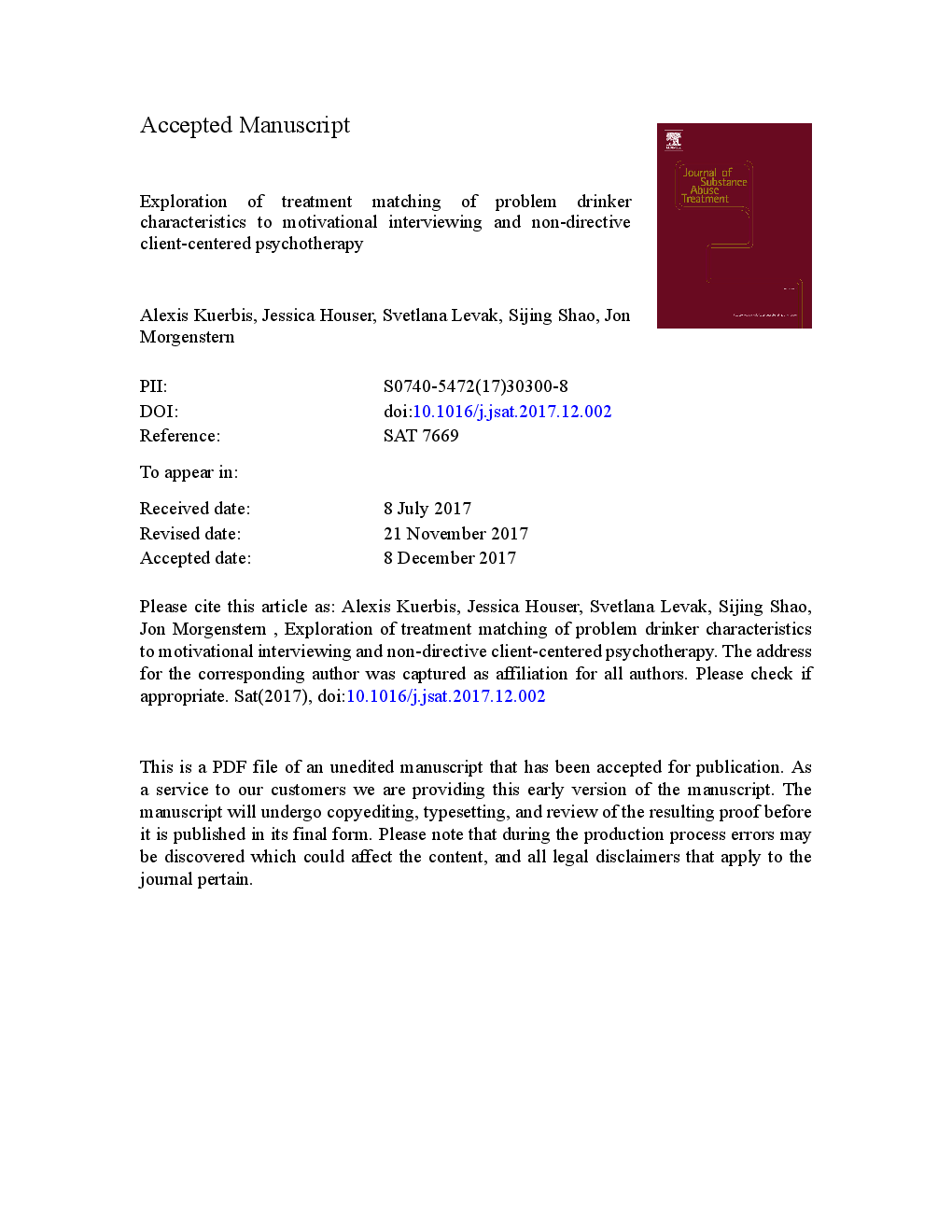ترجمه فارسی عنوان مقاله
اکتشاف تطابق درمان با ویژگی های نوشیدنی مشکلی به مصاحبه انگیزشی و روان درمانی مبتنی بر مشتری غیر محرمانه
عنوان انگلیسی
Exploration of treatment matching of problem drinker characteristics to motivational interviewing and non-directive client-centered psychotherapy
| کد مقاله | سال انتشار | تعداد صفحات مقاله انگلیسی |
|---|---|---|
| 129302 | 2018 | 33 صفحه PDF |
منبع

Publisher : Elsevier - Science Direct (الزویر - ساینس دایرکت)
Journal : Journal of Substance Abuse Treatment, Volume 86, March 2018, Pages 9-16
ترجمه کلمات کلیدی
فرضیه مطابقت، مصاحبه انگیزشی، مکانیسم تغییر رفتار، اعتماد به نفس، مدرن،
کلمات کلیدی انگلیسی
Matching hypothesis; Motivational interviewing; Mechanisms of behavior change; Confidence; Moderation;

